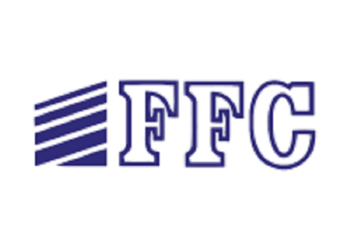Islamabad – Prime Minister Shahbaz Sharif has taken serious notice of a controversial proposal included in the Finance Bill 2025–26, which gives the Federal Board of Revenue (FBR) sweeping powers to arrest traders involved in tax fraud. Following mounting backlash from the business community and political stakeholders, the Prime Minister has summoned a high-level meeting of the economic team to deliberate on the matter and evaluate its potential impact on the economy.
The meeting, according to official sources, will include key figures such as the Finance Minister, FBR Chairman, and Law Minister, among others. The purpose is to review the legal, economic, and political implications of the proposed provisions that allow arrest and up to 10 years of imprisonment for traders found guilty of tax-related offenses.
Background: Controversial Clause in Finance Bill Raises Alarm
The controversy stems from a specific clause in the newly introduced Finance Bill 2025–26, which outlines new punitive measures against individuals or businesses engaged in tax evasion, concealment of income, and filing of fraudulent tax returns.
According to FBR officials, the clause is intended to deter large-scale tax fraud and improve Pakistan’s tax-to-GDP ratio, one of the lowest in South Asia. The new provision seeks to empower tax authorities to initiate direct legal action without prior approval from oversight bodies— a move that has generated widespread concern.
As per the draft proposal:
- The FBR can arrest traders or business owners suspected of willfully evading taxes.
- Convicted individuals may face imprisonment of up to 10 years.
- The arrest can be made without a warrant, pending post-arrest investigation and documentation.
Strong Reaction from Business Community and Trade Organizations
The business community has vehemently opposed the proposed changes, calling them draconian and damaging to the already fragile business environment. Several chambers of commerce, trade unions, and retailers’ associations across the country have issued public statements and press conferences demanding an immediate withdrawal of the clause.
Key Concerns Raised:
- Fear of misuse: Traders fear that the law could be misused by corrupt tax officials for harassment or extortion.
- No judicial oversight: The lack of need for a court order prior to arrest is seen as an infringement of fundamental rights.
- Investor confidence: The uncertainty created by such laws could deter foreign and domestic investors.
- Impact on small businesses: Critics argue that instead of targeting major defaulters, small and medium enterprises (SMEs) could be unfairly punished.
Political Leaders Voice Opposition
In the National Assembly session, multiple lawmakers expressed concern over the proposal, with Pakistan Peoples Party (PPP) leader Abdul Qadir Patel leading the charge. He delivered a scathing critique, calling the proposed powers “unconstitutional and anti-business.”
Abdul Qadir Patel’s Statement:
“This is not a tax reform; this is state-sanctioned victimization. You are giving FBR officials a license to arrest without trial or investigation. We cannot support this in a democratic setup.”
Patel demanded that the government withdraw this provision from the Finance Bill and instead focus on consultative reform and broadening the tax base through technology and transparency.
Prime Minister Steps In: High-Level Meeting Called
Reacting to the uproar, Prime Minister Shahbaz Sharif has personally intervened by calling an emergency meeting of the economic team. According to official sources in the Prime Minister’s Secretariat, the meeting aims to assess:
- The legal merit of the proposal
- Its economic impact on trade and industry
- Recommendations from political stakeholders and business representatives
The Prime Minister reportedly emphasized that economic revival and business community confidence are top priorities for his administration. While he supports strong enforcement against tax evasion, he also believes that legislation must not create fear or instability.
FBR’s Justification: The Need to Crack Down on Tax Fraud
From the FBR’s perspective, the measure is part of a broader effort to curb widespread tax evasion, which has severely undermined revenue collection and forced the government to rely on external debt and loans from the International Monetary Fund (IMF).
Key Arguments from FBR:
- Pakistan’s tax evasion rate is estimated to be over 40%.
- Billions of rupees are lost annually due to fraudulent filings.
- Current laws are toothless, with few real consequences for chronic defaulters.
- Similar provisions exist in other countries to ensure compliance.
FBR insiders argue that the proposed clause is aimed only at habitual and willful tax evaders, and not honest taxpayers or traders making minor errors.
Legal Experts Weigh In: Need for Checks and Balances
Legal analysts and constitutional experts have also shared mixed views on the matter. While some agree that stricter tax enforcement is necessary, many have warned against bypassing the due process of law.
Legal Concerns:
- Violation of Article 10-A of the Constitution (Right to Fair Trial).
- Lack of transparency in determining who qualifies for arrest.
- Potential for abuse by lower-tier officials without oversight.
Prominent lawyer and tax consultant Syed Zulfiqar Shah said:
“The intent may be good, but execution must be guided by judicial safeguards. Otherwise, it will lead to legal challenges and widespread fear.”
Business Leaders Demand Dialogue, Not Dictates
Business leaders, including presidents of major trade bodies such as the Karachi Chamber of Commerce and Industry (KCCI) and the Lahore Chamber of Commerce (LCCI), have urged the government to consult stakeholders before passing such laws.
They suggest forming a joint advisory committee including representatives from:
- FBR
- Ministry of Finance
- Law Ministry
- Chambers of commerce
- Independent legal experts
Their key recommendation is to replace arrest provisions with financial penalties and to expand the digital tax net using AI, big data, and automated audit trails.
What Happens Next?
With the budget debate ongoing in the National Assembly, and the Finance Bill 2025–26 scheduled for final approval before June 30, the next few days will be crucial. All eyes are now on the meeting called by PM Shahbaz Sharif and the subsequent announcement expected from the Prime Minister’s Office or the Finance Ministry.
If the clause is withdrawn or modified, it would reflect the government’s willingness to balance enforcement with economic sensitivity. If not, the possibility of business protests or legal challenges cannot be ruled out.
Conclusion: Balancing Tax Reform with Economic Stability
The proposal to allow arrests for tax fraud has sparked one of the biggest political and business debates of the 2025–26 budget season. While the government and FBR stress the importance of enforcement in a country with one of the lowest tax compliance rates, the lack of consultation and judicial oversight has made this a high-stakes issue.
Prime Minister Shahbaz Sharif’s prompt intervention signals the importance of maintaining investor confidence, ensuring fairness, and fostering a cooperative tax culture—goals that can only be achieved through dialogue and reform, not fear and coercion.

























